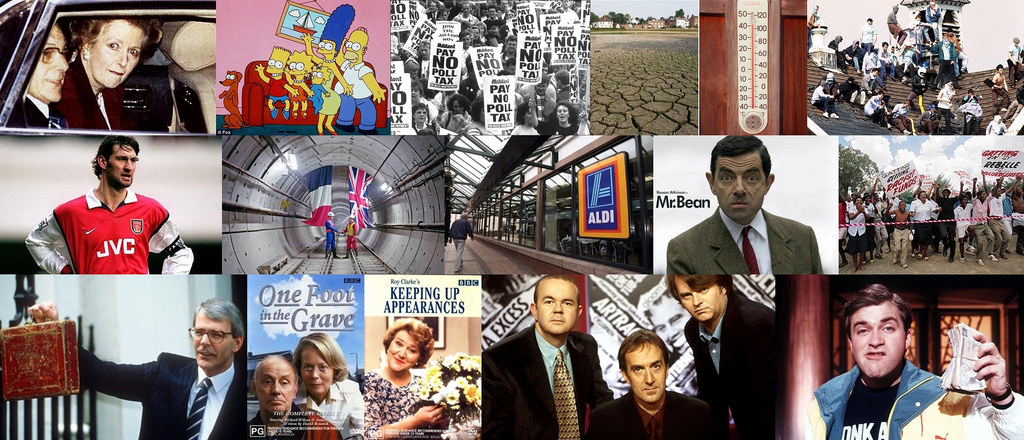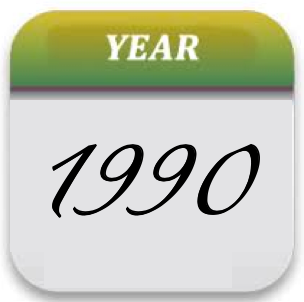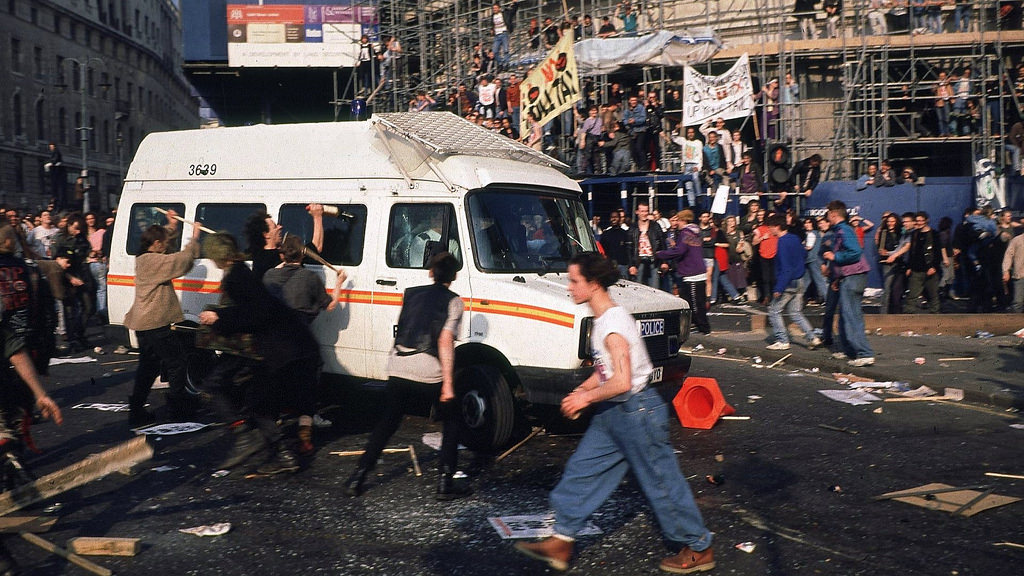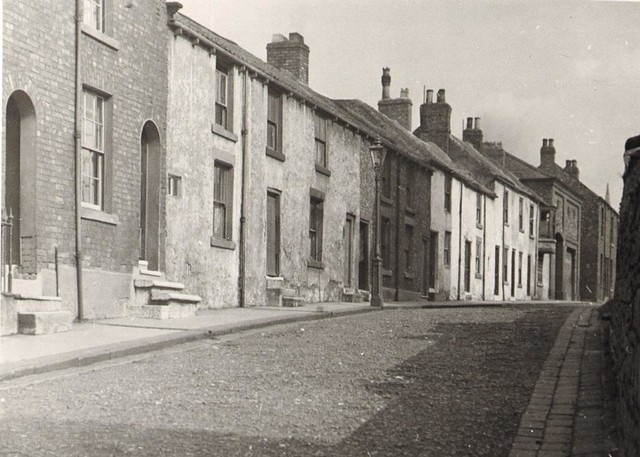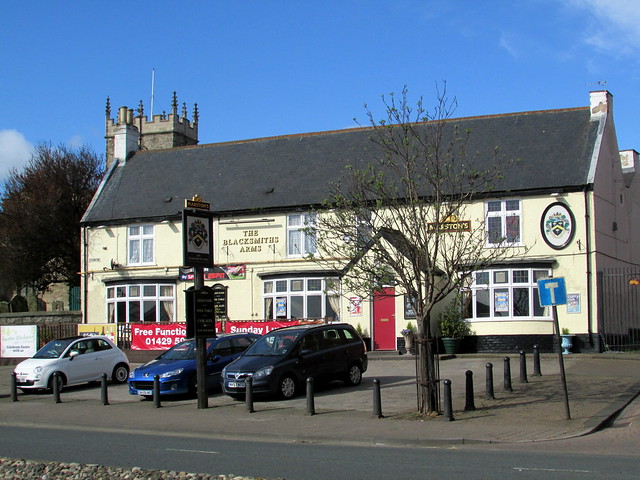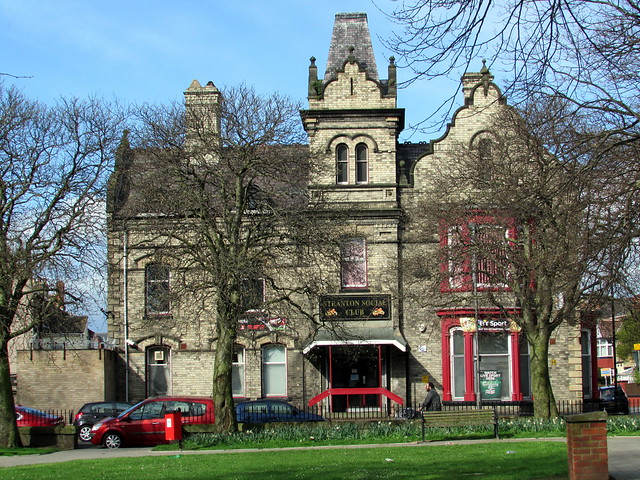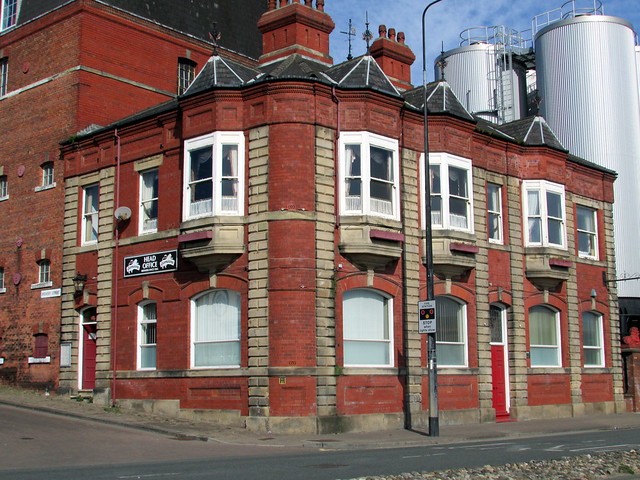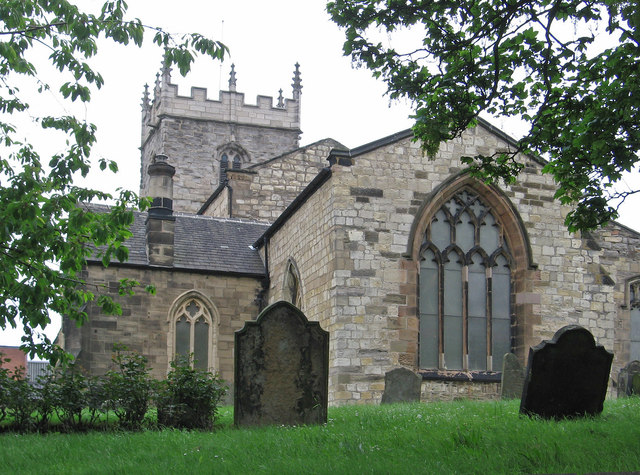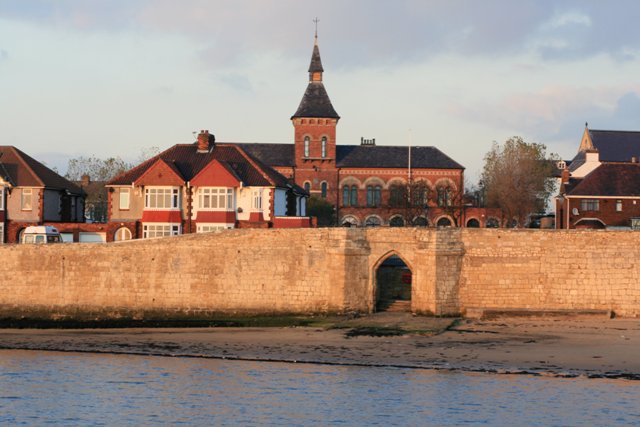That Was the Year That Was - 1990

-
Description
1990 Following the Iraq invasion of Kuwait on August 2nd Desert Shield Begins as the United States and UK send troops to Kuwait. The US enters a bad recession which will have repercussions over the next few years throughout the world. This is also the year "The Simpsons" is seen for the first time on FOX & SKY TV. Following the Berlin Wall falling East and West Germany reunite. In technology Tim Berners-Lee publishes the first web page on the WWW and it shown that there is a hole in the Ozone Layer above the North Pole, also the First in car GPS Satellite Navigation System goes on sale from Pioneer. Britain 1990 Thatcher quits as prime minister Margaret Thatcher is to stand down as prime minister after her Cabinet refused to back her in a second round of leadership elections. She will remain in office until a successor is elected, but will not continue to fight Michael Heseltine for the Conservative Party leadership. The former secretary of state for the environment threw down the gauntlet after a string of serious disputes over Britain's involvement in the European Union. The prime minister said pressure from colleagues had forced her to conclude that party unity and the prospect of victory in the next general election would be better served if she stepped down. Labour leader Neil Kinnock said the prime minister's decision showed she amounted to more than those who had recently turned against her. But the outgoing Tory leader refused a request from Mr Kinnock to hold a general election so the British people could make their own choice about her successor. Tributes flooded in from admirers and opponents around the world, including Neil Kinnock and President Bush, who called her a staunch ally to the United States and added: "I'll miss her." But the Stock Market rose at the news. Mr Kinnock savaged Conservatives who had abandoned a leader they had supported through "11 oil-rich years with a recession at each end and a miracle in between". Tories choose Major for Number 10 John Major is to be Britain's new prime minister after winning the Conservatives' leadership election. Mr Major, 47, will visit the Queen at 1030 BST tomorrow to be formally appointed and will return to Downing Street as the youngest British leader this century. Currently serving as Chancellor of the Exchequer, Mr Major did not achieve the majority required for an absolute victory, but the margin was clear enough for his rivals to withdraw and a third ballot was avoided. Mr Major - who has been in parliament for only 11 years - said he was enormously encouraged so many had voted for him and would discharge his responsibilities to the best of his ability. Violence flares in poll tax demonstration This was a day of protest against Margaret Thatcher’s poll tax that had turned into the most serious riot central London had seen for a century. As missiles flew and police horses charged. An anti-poll tax rally in central London has erupted into the worst riots seen in the city for a century. Forty-five police officers are among the 113 people injured as well as 20 police horses. A total of 340 people have been arrested in the heart of London's West End, popular with musical and theatre goers, as cars have been overturned and set alight. Four tube stations have been shut for safety reasons as police try to clear the streets, with much of central London now cordoned off. Demonstrators have attacked police with bricks and cans. Fire fighters attempting to extinguish the blazes have been hit with wood and stones. Restaurants have been forced to close early by the violence which left shop windows smashed and many businesses with their contents looted. Eyewitness reports describe a cloud of black smoke over Trafalgar Square. UK temperatures reach record high At the beginning of August 1990 there was a widespread hot spell, during which a new UK temperature record was set. A maximum of 37.1 °C was measured at Cheltenham on the 3rd, beating the record of 36.7 °C set at Raunds (Northamptonshire), Epsom (Surrey) and Canterbury (Kent) on 9 August 1911. Temperatures exceeded 32 °C over large areas of southern, central and eastern England and east Wales from the 1st to 4th, peaking on the 3rd with over 35 °C recorded in several large swathes of England. Across England and Wales, the heat placed strains on every day life. Transport was affected with road closures as surfaces melted, a runway at Heathrow airport suffered similar problems and, as a precaution, speed restrictions were in force for some inter-city trains in case rails buckled. There was also a surge in hospital admissions with heat-related conditions, and an increased mortality rate. The fire services were kept busy tackling heath and farmland fires that broke out in dry conditions that had prevailed since March. On 3 and 4 August there was a spate of drownings as people turned to swimming as a way of keeping cool. The entire stock of a Liverpool chocolate factory melted and at Stansted Mountfichet Castle, Essex a waxwork knight melted into a puddle. Although the sweltering temperatures are being enjoyed by holidaymakers and sun seekers, they are not good news for everyone. Fire crews are battling countryside fires in North Yorkshire and more than 100 square miles (259 square kilometres) of the Peak District National Park will be closed from midnight on Sunday to protect the moorland from careless visitors. Penguins at Bristol zoo and a herd of rare pigs from Ludlow in Shropshire, are receiving daily cold showers of water to prevent them from dehydrating. Many roads around the country are clogged as motorists make their way to coastal resorts and some intercity trains will be running at reduced speeds because of possible distortion of the rails in the intense heat. Reservoir levels are also falling but officials are confident that supplies are not yet at risk. Rioting inmates take over Strangeways Up to 1,000 prisoners are running amok in Strangeways Prison in Manchester in a violent riot in which at least three prisoners are reported to have been killed. The rioting began this morning during a service in the prison chapel, attended by about 300 inmates. It is believed the action may have been planned in advance as a protest against conditions at the jail. Prisoners quickly gained access to the chapel roof and broke into the living accommodation in the main prison. The inmates have taken up positions on the main prison roof, tearing off slates and pelting prison officers, police and emergency services with them. They have set fire to the chapel and gymnasium, and wrecked prison cells. The riot at Strangeways turned into a siege lasting 25 days - the longest in British penal history. Early reports of high casualties proved unfounded. Two men died - one prisoner, and a prison officer. Almost 200 inmates and staff were injured. The prison was damaged so badly it cost £55 million to rebuild. It has since been renamed HMP Manchester. A major inquiry into the riot was set up under a senior judge, Lord Woolf. He said severe overcrowding was to blame, and recommended several practices should end, including "slopping out" and putting prisoners two or three to a cell. Slopping out - the use of chamber pots in cells without sanitation - officially came to an end in 1996, although it still continues in some parts of the prison service. A major prison building programme has now begun in an effort to solve the continuing problem of overcrowding. Meanwhile, the prison population has been steadily rising. In 1990, there were 45,000 prisoners in England and Wales. By 2005 there were more than 73,000. Tony Adams Just before Christmas in 1990, the former Arsenal captain staggered away from a drinks party and drove his car into a telegraph pole at 70mph. He was four times over the limit and served 56 days in prison for his misdemeanour. As he was sent down, he was handcuffed to another prisoner who groaned in dismay. When Adams asked him what was wrong, the man apparently replied: "This is a nightmare. I'm a Tottenham fan." When he just missed the cut for the World Cup squad in May 1990, Tony Adams was hailed as a future England captain by the manager Bobby Robson. He wasn't wrong, but Adams' journey would not be a smooth one: the same month, Adams drove into a wall while drunk, and was jailed for four months in December 1990. He served two before returning to help Arsenal win the league that season and, though his drink problems were still lingering, he conquered them once and for all in 1996. The stories of drinking among George Graham's men in the early part of the decade are legendary - Paul Merson, Tony Adams and Ray Parlour were among those who regularly attended Arsenal's infamous "Tuesday club" - but other excesses are perhaps less well known."We used to have eating contests on the way up to games," Merson confessed in a recent television documentary. "You know, who could finish the most pies on the coach up to Newcastle or somewhere like that." With Arsenal players bloated and most likely hungover before they even warmed-up for matches, it is hardly surprising Manchester United were able to wrestle the initiative from them prior to Arsène Wenger's arrival at the club. Britain and France connected France and the UK were not always separated. Thousands of years ago they were connected by land but a humongous flood carved out a break and changed Britain’s landscape and the course of history forever and Britain became an island. Estimates say that as short a time ago as 6000 BC you could walk to France from Britain at certain times of the year! Just think – if that flood hadn’t happened and we were still joined together – would the French be British or the British French?! It doesn’t bear thinking about does it? The two countries have been good friends at times and not so good at others and getting across to see each other was by boat for thousands of years until people started to think about new, better ways to visit each other and one of those ways was by tunnel. On December 1, 1990, a historic meeting between British and French building workers took place when they met in the middle and toasted the event with champagne. Four years later on May 6, 1994, a year behind schedule and way over budget, Queen Elizabeth II and President Mitterand declared the Channel Tunnel - the longest undersea tunnel in the world – open. France and Britain were once more connected. It may already be too late for Tesco and Sainsbury's, the rise of Aldi and Lidl looks unstoppable The "big four" supermarkets took their eye off Aldi and Lidl, and now British shoppers can't get enough of them. The German discounters Aldi and Lidl arrived in the UK in 1990 and 1994 respectively. But after two decades of highs and lows, they have finally built a proposition that resonates with UK consumers, and they are reshaping how we shop. 5 April – Aldi, a German discount food supermarket chain, opens its first store in Britain, in Stechford, Birmingham. Poundland, a supermarket chain selling all items for £1, opens its first store at Burton-upon-Trent, Staffordshire. Netto, a Danish discount food supermarket chain, opens its first store in Britain in Leeds. But perhaps the clearest evidence that the momentum behind discount retailing is unstoppable was provided by Sainsbury’s. The company is to relaunch Netto as its own discount chain. If you can’t beat them, join them. 1990 Shopping Basket dozen eggs - 90p Cadbury' s Freddo Frog - 10p pint of milk - 25p oven-fresh loaf of bread - £1 oven-ready chicken - £1 pork shoulder - £1.50 pint of beer - 99p 100g jar of instant coffee - 1.75 1990 Timeline January – Vauxhall enters the coupé segment of the car market with the launch of its Cavalier-based Calibra, which is the first coupé built by General Motors in Europe since the demise of the Opel Manta in 1988. 1 January - Glasgow begins its year as European Capital of Culture, the first designated in the British Isles. Television debut of Rowan Atkinson's Mr. Bean in a Thames Television special. 13 January – Some 50,000 people demonstrate on the streets of London to support of Britain's ambulance workers, as the ongoing ambulance crew strike continues four months after it began. 18 January – The first MORI poll of the decade shows that Labour have a 12-point lead over the Conservatives with 48% of the vote. Liberal support is at its lowest for more than a decade as the Liberal Democrats gain just 5% of the vote. 19 January – Police in Johannesburg, South Africa, break up a demonstration against the cricket match played by rebel English cricketers led by Mike Gatting. 25 January – Burns' Day storm: hurricane-force winds are reported to have killed 39 people in England and Wales. 29 January – Lord Justice Taylor publishes his report in the Hillsborough disaster, which claimed the lives of 95 Liverpool F.C. supporters on 15 April last year. He recommends that all top division stadiums are all-seater by 1994 and that the rest of the Football League follows suit by 1999, but rules out the government's proposed ID card scheme to combat football hooliganism as "unworkable". 9 February – Ayatollah Khomeini of Iran renews his fatwa on British author Salman Rushdie, which he imposed last year following controversy over the author's book: The Satanic Verses. 15 February - The UK and Argentina restore diplomatic relations after eight years. Diplomatic ties were broken off in response to Argentina's invasion of the Falkland Islands in 1982. Neil Kinnock's dream of being prime minister appears closer to becoming reality as the latest MORI poll shows Labour on 51% with a 17-point lead over the Conservatives. 20 February – Three people are injured in Leicester city centre by a bomb explosion. 26 February – Fourteen people are killed as storms hit Britain. One of the worst-hit areas is Towyn in North Wales, where approximately 2,000 people are evacuated from their homes after huge waves smash a 200-yard hole in the sea wall and cause a major flood. 27 February – Economists warn that house prices could fall by up to 10% this year. 1 March – The Official Secrets Act 1989 comes into force. 7 March – Halifax Building Society reveals that house prices rose by 0.3% last month – the first monthly rise since July last year. 9 March – 37 people are arrested and 10 police officers injured in Brixton, London, during rioting against the new Community Charge. 13 March – The ambulance crew dispute ends after six months when workers agree to a 17.6% pay rise. 15 March - Iraq hangs British journalist Farzad Bazoft for spying. Daphne Parish, a British nurse, is sentenced to fifteen years in prison for being an accomplice to Mr Bazoft. Britain's unemployment is now down to 1,610,000 – the lowest since 1978. However, it is a drop of just 2,000 on January's total and economists fear that a sharp rise in unemployment could soon begin as there are widespread fears of a recession. 20 March – Chancellor John Major delivers the first budget to be shown on television. 21 March – Allan Roberts, Labour MP for Bootle, dies of cancer aged 46. 23 March – The Duke and Duchess of York's second child, another daughter, is born. 28 March – ITV broadcasts the Granada Television documentary drama, Who Bombed Birmingham?. The programme, which looks at the 1974 Birmingham pub bombings and the conviction of the Birmingham Six names several people believed to have actually been behind the bombings. 31 March – 200,000 protesters in Poll Tax Riots in London in the week preceding official introduction of the Community Charge. 1–25 April – 1990 Strangeways Prison riot in Manchester. 2 April – An earthquake measuring 5.1 on the Richter scale and centred on the Shropshire town of Bishop's Castle is felt throughout much of England and Wales. 4 April – Dr Raymond Crockett is struck off the medical register for using kidneys from Turkish immigrants who had been paid to donate them. 5 April – Aldi, a German discount food supermarket chain, opens its first store in Britain, in Stechford, Birmingham. 9 April – Four Ulster Defence Regiment soldiers are killed by an IRA bomb in County Down. 10 April – With nineteen inmates at Strangeways Prison in Manchester still staging a rooftop protest against prison conditions, rioting has broken out at prisons in Cardiff and Bristol. 11 April – Customs and Excise officers seize parts of an Iraqi supergun in Middlesbrough. 19 April – Labour now have a 23-point lead over the Conservatives in the latest MORI poll. 29 April – Stephen Hendry, 21, becomes the youngest ever world snooker champion. May – Rover Group launches a heavily facelifted version of its Metro, which has been the best-selling car of the combine previously known as British Leyland and more recently Austin Rover since its 1980 launch. 3 May – The end of House price inflation is declared by Halifax Building Society, two years after the housing market peaked. 4 May – The local council elections see Labour win more local council seats than the Conservatives. Neil Kinnock's hopes of victory in the next general election are further boosted by the fact that Labour have finished ahead in most of the last year's opinion polls. 7 May – The Prince and Princess of Wales travel to Budapest for the first postwar British royal visit there. 8 May – Billy Cartman, a 33-year-old grouter, becomes the sixth Briton to die in the construction of the Channel Tunnel when he is crushed by heavy machinery. 11 May – Inflation now stands at 9.4% – the highest level for eight years. 19 May - British agriculture Minister John Gummer feeds a hamburger to his 5-year-old daughter to counter rumours about the spread of Bovine spongiform encephalopathy and its transmission to humans. Unemployment is reported to have risen for the first time in four years, though it is still only just over 1,600,000 compared to the high of more than 3,000,000 that was on record in 1986. Helen Rollason becomes the first female presenter on BBC1's Grandstand. 25 May – The "rump" Social Democratic Party (consisting of members who backed out of the merger with the Liberal Party which formed the Liberal Democrats two years ago) finishes behind the Monster Raving Loony Party in the Bootle by-election, where Labour retain power under new MP Michael Carr. 30 May – France bans British beef and live cattle imports as a precaution against fears of BSE being spread. 1 June – An army recruit is shot dead and two others are wounded by two suspected IRA gunmen in Lichfield, Staffordshire. 3 June – The Social Democratic Party is wound up after nine years in existence. 7 June – France, Italy and West Germany lift bans on British beef imposed during the BSE outbreak. 14 June - The proposed high-speed rail link between London and the Channel Tunnel is shelved. Unemployment rises for the second month running, though by just over 4,000 to a total of 1,611,000 in May. 20 June – Chancellor of the Exchequer John Major proposes the "hard ecu", a currency which would ciruclate into parallel with national currencies as an alternative to full monetary union. 2 July – Girobank Plc privatised by sale to the Alliance & Leicester Group. 11 July – Labour MP's accuse the Conservative government of "fraud" amid allegations that the 1,600,000 fall in unemployment since 1986 included a million people leaving the list without finding work. 14 July – Trade and Industry Secretary Nicholas Ridley resigns following an interview in The Spectator in which he likened the European Union to Hitler's Germany. 16 July - An official report reveals that High Street sales are at their lowest since 1980, sparking further fears of a recession. Nigel Mansell, Britain's most successful racing driver of the last 10 years, announces that he is to retire from Grand Prix races at the end of the 1990 season. 17 July – German food superstore chain Aldi opens its first British store in Birmingham and plans to have up to 200 stores across the country by 1993. 19 July – Saddam Hussein, dictator of Iraq, frees Daphne Parish from prison for "humanitarian reasons" and she returns to Britain. 20 July - An IRA bomb explodes at Stock Exchange Tower, the base of the London Stock Exchange. Michael Car, Labour MP for Bootle, dies after just 57 days in parliament from a heart attack at the age of 43. 24 July – A Roman Catholic nun and three police officers are killed by an IRA landmine in County Armagh. 30 July – IRA car bomb kills British MP Ian Gow, a staunch unionist, after he assured the IRA that the British government would never surrender to them. 31 July – The England cricket team defeats the India national cricket team in a high-scoring Lord's test match totalling 1,603 runs. 1 August – British Airways Flight 149 is seized by the Iraqi Army at Kuwait International Airport following the Iraqi invasion of Kuwait. 3 August – Heat wave peaks with a temperature of 37.1°C (98.8°F) recorded at Cheltenham, Gloucestershire. 5 August – Margaret Thatcher announces her desire for a new Magna Carta to guarantee basic rights for all European citizens. 14 August – A survey carried out by the BBC reveals that 20% of taxpayers in England and Wales had not paid their Community Charge by 30 June this year. 16 August – A MORI poll shows that Labour now has a 15-point lead over the Conservatives with 50% of the vote, while support to the Liberal Democrats has doubled to 10% over the last seven months. 22 August – James MacMillan's symphonic piece The Confession of Isobel Gowdie premieres at The Proms in London. 23 August – British hostages in Iraq are paraded on TV. Ford launches the new version of its Escort hatchback, estate and cabriolet, and Orion saloon, two cars with combined sales figures which account more than 10% of new cars sold in Britain. Sales of the two cars begin in Britain and the rest of Europe next month. 24 August – Irish hostage Brian Keenan is released in Beirut, Lebanon, after being held a hostage there for more than four years. 27 August - Four found guilty in the Guinness share-trading fraud trial. The BBC begins broadcasting on Radio 5, its first new station for 23 years. 2 September – The long-running animated series The Simpsons is broadcast in the United Kingdom for the first time, making its début on Sky1. Call of the Simpsons is the first episode to be shown on Sky. 3 September – Rosie and Jim first airs on ITV. 5 September – New BBC building at White City opens. 7 September – After an 8-year absence, The Generation Game returns on BBC1 with Bruce Forsyth as returning host and Rosemarie Ford as hostess. 10 September – Pegasus, a leading British travel operator, goes bankrupt. 18 September – Air Chief Marshal Sir Peter Terry survives a murder attempt by IRA terrorists at his home near Stafford. 22 September – John Banham, a leading British industrial minister, warns that most of Britain is now affected by a recession and that there is worse to come. The latest CBI prediction is also the gloomiest since 1980, the last time Britain was in recession. Fears of a recession have been growing across most of the world since the autumn of last year. However, chancellor John Major denies that Britain is on the verge of a recession. 26 September – Margaret Thatcher joins in with the politicians who are denying that the British economy is slumping into recession, despite manufacturers reporting their biggest drop in output since 1982 and a growing number of bankruptcies. 2 October – Neil Kinnock cites education and training as key areas needing an improvement in standards when he addresses his party's conference in Blackpool. 8 October - Pound Sterling joins the Exchange Rate Mechanism. First members of the Women's Royal Naval Service to serve officially on an operational warship board Type 22 frigate HMS Brilliant. 18 October – Eastbourne by-election in East Sussex. 19 October – David Bellotti for the Liberal Democrats wins the "safe" Eastbourne Conservative seat. 23 October - Treasury officials speak of their belief that a "brief, technical" recession in the British economy is now inevitable. Edward Heath, the former British prime minister, leaves Baghdad on a plane bound for Heathrow Airport with 33 freed hostages. Saddam Hussein has promised to release a further 30 hostages in the near future. David Lynch's critically acclaimed serial drama Twin Peaks receives its British television debut at 9.00pm on BBC2. 27 October – Economists predict that the current economic downturn will be confined to the second half of this year. 29 October - Premier of Keeping up Appearances on TV. November - British Sky Broadcasting founded as a merger between Sky Television and British Satellite Broadcasting. Government produces Planning Policy Guidance 16: Archaeology and Planning to advise local authorities on the treatment of archaeology within the planning process. Site developers are required to contract with archaeological teams to have sites investigated in advance of development. Neil Kinnock, who has been leader of the Labour Party since October 1983, is now the longest serving opposition leader in British political history. 1 November - Geoffrey Howe, Deputy Prime Minister, resigns over the government's European policy. Broadcasting Act makes bidding for independent television franchises more commercially based and relaxes regulation of television and radio broadcasting. Courts and Legal Services Act introduces major reforms of the legal profession and Courts of England and Wales. 2 November – Neil Kinnock announces his support for the adoption of a single European currency. 8 November – The second Bootle by-election of the year sees Labour hold onto the seat once more with new MP Joe Benton gaining nearly 80% of the votes. 12 November – The Football Association penalises Arsenal two points and Manchester United one point and fines both clubs £50,000 for a mass player brawl in a Football League match between the two clubs last month at Old Trafford. 13 November – Geoffrey Howe makes a dramatic resignation speech in the House of Commons, attacking the Prime Minister, Margaret Thatcher's hostility towards the EC. 14 November – The CBI confirms that the whole of Britain is now in recession, with every region now reporting a fall in output. Former cabinet minister Michael Heseltine announces that he will challenge Margaret Thatcher's leadership. 15 November – Despite constant disputes in the government and widespread doubt over Mrs Thatcher's position as prime minister and party leader, as well as the economy sliding into recession, the Conservatives have cut Labour's lead in the opinion polls to four points as they gain 41% of the vote in the latest MORI poll. 19 November – Major job cuts are reported to be on the way at the Rover Group as the recession affects demand for the company's Rover and Land Rover products. 20 November – Margaret Thatcher fails to win outright victory in a leadership contest for the Conservative Party. Broadcaster John Sergeant's famous encounter with Margaret Thatcher on the steps of the British embassy in Paris. He was waiting for Thatcher in the hope of hearing her reaction to the first ballot in the party leadership contest of 1990, only to be pushed aside by her press secretary, Sir Bernard Ingham, when Thatcher emerges from the building. Sergeant later wins the British Press Guild award for the most memorable broadcast of the year. 22 November – Margaret Thatcher announces her resignation as Leader of the Conservative Party and therefore as Prime Minister, having led the government for more than 11 years and the Conservative Party for nearly 16 years. She was the longest serving prime minister of the 20th century. 26 November – Plastic surgeons Michael Masser and Kenneth Patton are murdered in Wakefield, West Yorkshire. 27 November – John Major is elected Leader of the Conservative Party, defeating Douglas Hurd and Michael Heseltine. 28 November – John Major appointed Prime Minister by the Queen, as Margaret Thatcher officially tenders her resignation after leaving 10 Downing Street for the last time. 1 December - Channel Tunnel workers from the United Kingdom and France meet 40 metres beneath the English Channel seabed, establishing the first land connection between the United Kingdom and the mainland of Europe for around 8,000 years. With the media watching, the two ends of the service tunnel of the Channel Tunnel are joined together, linking Britain and France for the first time since the Ice Age. A handshake then takes place between Englishman Graham Fagg and Frenchman Phillippe Cozette, after which British and French workers board trains to complete the first journey between the two countries. The CBI predicts that the recession will last longer than predicted, and that GDP is likely to fall by at least 1% in 1991. 3 December – The mother of Gail Kinchin is awarded £8,000 in High Court, a decade after her pregnant 16-year-old daughter was killed by a police marksman who intervened with a siege at the Birmingham flat where she was being held hostage by her boyfriend. 6 December - Saddam Hussein announces that all British hostages in Iraq are to be released. House price inflation has returned and stands at 0.2% for November, the first year-on-year rise in house prices since February. 8 December – The UK grinds to a halt following heavy snow overnight. Large parts of the country are without power after snowfall brings down power lines, disrupting the electricity supply. Many rural areas are cut off for several days, while the Army is called out to help restore power. There is grim news for the retail industry as a CBI survey reports that retail sales have hit a standstill and High Street employment will fall. 9 December – Cilla Black hosts Happy Birthday Coronation Street, an evening of entertainment on ITV to celebrate the 30th anniversary of the long–running soap. 11 December - The first British hostages in Iraq released by Saddam Hussein arrive back in the UK. The government makes £42 million compensation available to the 1,200 British haemophiliacs infected with the AIDS virus through blood transfusions. 12 December – The new chancellor Norman Lamont rules out an early cut in interest rates which critics, including opposition MP's, claim would be a quick route out of recession. 13 December - Russell Bishop is sentenced to life imprisonment (with a recommended minimum of 15 years) for the abduction, indecent assault and attempted murder of a seven-year-old girl in Brighton earlier this year. Bishop, 24, was cleared of murdering two other girls in 1987. Poundland, a supermarket chain selling all items for £1, opens its first store at Burton-upon-Trent, Staffordshire. Netto, a Danish discount food supermarket chain, opens its first store in Britain in Leeds. The sharpest rise in unemployment since 1981 has taken it to more than 1,700,000, with 155,000 jobs having been lost in Britain since April. Economists blame high interest rates; a government method to combat inflation. 19 December – Tony Adams, the Arsenal captain and England defender, is sentenced to four months in prison for a drink-driving offence committed in Southend-on-Sea on 6 May this year. 20 December - British women Karyn Smith (aged 19) and Patricia Cahill (aged 20) receive 25-year prison sentences in Thailand for heroin smuggling. Their lawyers are planning to ask for a Royal pardon. An era ends in the Rhondda, South Wales, when the last coalmine closes after more than 100 years of heavy coalmining in the region. 300 miners have lost their jobs and just seventeen will remain employed in the industry elsewhere. 23 December – The nine-month-old daughter of the Duke and Duchess of York is christened Eugenie Victoria Helena. 25 December – Storms on Christmas Day leave more than 100,000 British homes without power. 26 December – The fatwa (order to kill) against Satanic Verses author Salman Rushdie is upheld by Ayatollah Ali Khamenei, more than one year after it was first issued. Rushdie is still living in hiding. 27 December – The latest MORI poll shows that Conservative support has been boosted by the appointment of John Major, with his party now just four points behind Labour – eight months after Labour had peaked with a 23-point lead. 29 December – Leading economists warn that the recession creeping upon Britain will deepen during 1991 and unemployment is likely to increase to well over 2,000,000 from the current total of over 1,700,000. 30 December – An opinion poll shows Labour slightly ahead of the Conservatives for the first time since John Major became prime minister. 31 December – 88-year-old author Barbara Cartland becomes a Dame in the New Year's Honours. Inflation reached 9.5% for the first time since 1981. 0.1% of the UK population (some 60,000 people) now have access to the internet. Television BBC1 4 January – One Foot in the Grave (1990–2000) 26 March – Turnabout (1990–1996) 21 April – 8:15 from Manchester (1990–1992) 28 June – Waiting for God (1990–1994) 2 July – MasterChef (1990–2001, 2005–present) 29 October – Keeping Up Appearances (1990–1995) BBC2 2 July – MasterChef (1990–2001, 2005–present) 28 September – Have I Got News for You (1990–present) 3 October – The Mary Whitehouse Experience (1990–1992) 8 November – Harry Enfield's Television Programme (1990–1998) ITV 1 January – Mr. Bean (1990–1995) 1 January – Nellie the Elephant (1990–1991) 7 February – El C.I.D. (1990–1992) No Job for a Lady (1990–1992) 28 February – Spatz (1990–1992) 6 March – Chancer (1990–1991) 16 April – You've Been Framed! (1990–present) 22 April – Jeeves and Wooster (1990–1993) 23 April – Families (1990–1993) 1 May – The Upper Hand (1990–1996) 1 June – The $64,000 Question (1990–1993) 15 June – Art Attack (1990–2007 ITV, 2011–present Disney) 21 July – Stars in Their Eyes (1990–2006, 2015–present) 7 September – The Piglet Files (1990–1992) 25 September – The Dreamstone (1990–1995) 26 September – How 2 (1990–2006) 29 December – The Widowmaker Channel 4 February – Cutting Edge (1990–present) 15 February – The Crystal Maze (1990–1995) 9 August – Drop the Dead Donkey (1990–1998) Sky One 2 September – The Simpsons (1990–present) Music Charts Number-one singles "Do They Know It's Christmas?" - Band Aid II "Hangin' Tough" - New Kids on the Block "Tears on My Pillow" - Kylie Minogue "Nothing Compares 2 U" - Sinéad O'Connor "Dub Be Good to Me" - Beats International "The Power" - Snap! "Vogue" - Madonna "Killer" - Adamski featuring Seal "World in Motion" - New Order "Sacrifice / Healing Hands" - Elton John "Turtle Power" - Partners in Kryme "Itsy Bitsy Teenie Weenie Yellow Polka Dot Bikini" - Timmy Mallett with Bombalurina "The Joker" - Steve Miller Band "Show Me Heaven" - Maria McKee "A Little Time" - The Beautiful South "Unchained Melody" - The Righteous Brothers "Ice Ice Baby" - Vanilla Ice "Saviour's Day" - Cliff Richard -
Owner
brizzle born and bred -
Source
Flickr (Flickr) -
License
What does this mean? Attribution-NonCommercial-ShareAlike License
-
Further information
Link: https://www.flickr.com/photos/20654194@N07/18084313175/
Resource type: Image
Added by: Peter Smith
Last modified: 7 years, 11 months ago
Viewed: 1531 times
Picture Taken: 2015-05-25T16:22:19 -
Co-Curate tags
